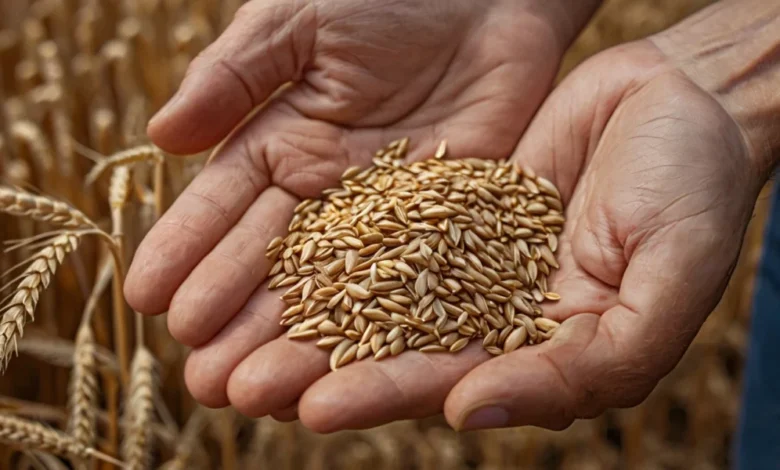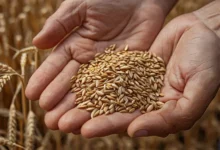The Enigmatic World of Agrawau: Exploring Its Significance and Origins?

The word “agrawau” might sound unfamiliar to many, yet it holds a fascinating place in specific contexts, cultures, or niche communities. Understanding the term “agrawau” involves delving into its potential origins, uses, significance, and impact on various aspects of life. This article will explore the different interpretations, cultural roots, possible meanings, and modern-day relevance of “agrawau.”
The Origin and Meaning of Agrawau
Before diving more deeply, exploring where “agrawau” might have originated and what it represents is essential. The etymology of “agrawau” is still unclear, with various theories surrounding its roots. While some suggest that it might be derived from ancient languages or regional dialects, others believe it could be a coined term from literature, folklore, or even the digital age.
Possible Historical Roots of Agrawau
“Agrawau” might be a term with connections to traditional societies or ancient scripts. Historical linguistics has shown that certain words are passed down through oral traditions or revived through old manuscripts. If “agrawau” has such origins, it would likely be found in folklore, religious texts, or local stories that have remained under the radar of mainstream culture.
Modern Interpretations of Agrawau
Today, words like “agrawau” can surface in various domains, including literature, online communities, or even creative writing, where new terms are coined to add depth and authenticity to stories. Some writers use unique words to evoke a sense of wonder or to create fictional worlds that resonate with readers. Whether or not “agrawau” has literary roots, its growing usage in creative storytelling could explain why it has sparked intrigue.
The Cultural Significance of Agrawau
Language finds its most profound meaning in culture, and “agrawau” may have cultural ties that enrich its significance. Communities worldwide often have unique words encapsulating complex feelings, philosophies, or social practices.
Agrawau in Folklore and Mythology
In mythology, unique terms can often be associated with mystical or mythical elements. If “agrawau” were part of a specific folklore tradition, it could represent anything from an ancient relic to a spiritual concept or even a deity. This perspective would make “agrawau” an invaluable part of the stories that shape a community’s identity.
Symbolic Meanings and Associations
If “agrawau” carries symbolic meanings, it could signify something transcending its literal interpretation. In this sense, agrawau could stand for ideas like resilience, community spirit, or an embodiment of wisdom. Many cultures have similar words that do not directly translate but have deep-rooted meanings that only insiders fully understand. The idea of “agrawau” as a cultural symbol makes it more intriguing and complex.
Agrawau in Art and Creative Works
Artists and writers often reach for unique or obscure words to give their work an authentic and captivating feel. Agrawau could be one such term that authors use to create layered stories or elaborate narratives. From poetry to contemporary novels, rare words can make a piece more distinctive and memorable.
The Role of Agrawau in Literature
In literature, writers might employ the word “agrawau” as a motif or thematic element that enhances a story’s depth. For instance, it could be the name of a place with significant history or the title of a legend within a fictional world. Using words like “agrawau,” storytellers can evoke emotions and prompt readers to think about their narratives’ themes.
Agrawau in Modern Media
Beyond literature, “agrawau” could find its way into other forms of media, such as films, television series, or video games. In world-building for movies or interactive games, creators often invent words that help transport audiences to a different reality. Agrawau might be part of a fantastical realm or a unique cultural practice within the narrative.
The Linguistic Uniqueness of Agrawau
Linguists might be intrigued by “agrawau” due to its structure, pronunciation, and the curiosity it evokes. Regardless of its origin, the word itself could be subject to analysis regarding its phonetic qualities and how it compares to other words within a language or dialect.
Phonetic Analysis and Structure
The term “agrawau” has a distinct set of phonemes that simultaneously makes it sound harmonious and complex. This combination of sounds could make the word versatile enough to be used in different contexts, from names and titles to descriptions. Linguists may analyze how its pronunciation affects its memorability or emotional resonance.
How Agrawau Enters Everyday Language
Rare words sometimes become a part of everyday language through consistent use in popular media or among subcultures. If “agrawau” started as an obscure term, it could eventually gain traction, becoming more commonly used in conversation or artistic expressions. Such a process is seen with other niche words that have gone mainstream due to cultural shifts or viral trends.
Real-World Applications of Agrawau
While exploring the cultural and linguistic significance of “agrawau” is essential, understanding its practical applications could offer insight into how the term is used today or in the future.
Usage in Branding and Marketing
Unique and exotic words often catch the eye in branding and marketing. The distinct sound of “agrawau” could make it an excellent candidate for use in product names, slogans, or company brands. The word could be a strategic choice for businesses looking to evoke a sense of novelty, mystery, or cultural richness.
Agrawau in Academic and Scholarly Discourse
The term could also appear in academic circles, especially anthropology, history, or linguistics. Researchers might adopt “agrawau” to describe particular cultural practices or as a case study of how language evolves within niche communities. Scholarly papers and conferences could focus on words like “agrawau” as examples of cultural persistence or linguistic innovation.
The Future of Agrawau: Will It Gain Wider Recognition?
Whether or not “agrawau” gains prominence depends on multiple factors, such as media exposure, adoption by influential figures, and social media trends. If “agrawau” becomes more visible in books, articles, or digital content, it could carve out a niche in modern language. The potential for “agrawau” to become a recognized term may hinge on how it resonates with the public and how adaptable it is to different contexts.
Conclusion
“Agrawau” is a word shrouded in curiosity and mystery, inviting interpretations that span history, culture, literature, and linguistics. Whether it emerges as a term with significant cultural weight or as an inventive element in art and media, its enigmatic nature makes it worthy of exploration. By studying terms like “agrawau,” we gain insight into how language can carry meaning beyond its immediate understanding, enriching our interaction with words and their stories.

